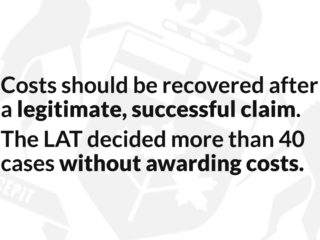Date Heard: May 1, 2018 | Full Decision [PDF]
The appellants are two former employees of the respondent MD. They were hired in 2003 and 2005 respectfully to provide financial services to MD’s clients. Each signed identical non-solicitation clauses as follows:
Non-Solicitation: The Employee agrees that the Employee shall not solicit during the Employee’s employment with the Employer and for the period ending two (2) years after the termination of his/her employment, regardless of how that termination should occur, within the geographic area within which s/he provided services to the Employer.
“Solicit” means: to solicit, or attempt to solicit, the business of any client, or prospective client, of the Employer who was serviced or solicited by the Employee during his/her employment with the Employee.
In 2013 the Appellants left MD to join RBC, a competitor company. On day one, they called MD clients from memory and attempted to solicit their business.
The Appellants argued that, with respect to the enforceability of the contracts that the trial judge erred in applying the wrong legal principles to the enforceability of the restrictive covenants. They allege that the agreement was ambiguous in regards to the term ‘solicit’, the geographic cope, the applicability of prospective clients, and the temporal length of the restriction.
J.C. MacPherson, C.W. Hourigan, and M.L. Benotto J.A, for the court of appeal did not agree with the Appellants submissions. At [8] the meaning of the word ‘solicit’ is obvious. The calls made were not ‘courtesy calls’ but rather made with a view of bringing the clients to RBC. Citing the Supreme Court in Elsley Estate v. J.G. Collins Agencies Ltd., 1978 CanLII 7 (SCC), [1978] 2 S.C.R 916, and H.L. Staebler and Co. v. Allan, 2008 ONCA 576 (CanLII), MD was in fact a specialized company dealing with specific clientele and having a proprietary interest in ensuring that its business is not used by financial planners to take customers away.
The non-solicit was reasonable in terms of public interest. It protects without unduly compromising its employees. There was no ambiguity with respect to the term of length. The appeal was dismissed with costs payable to the respondents in the amount of $55,000.
Read the full decision [PDF]











